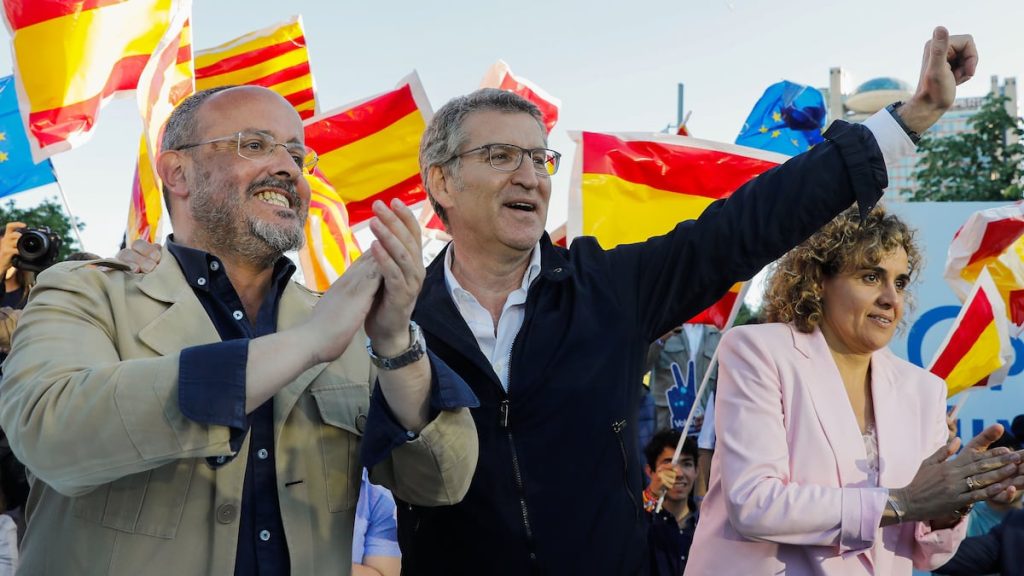The parties continue to analyze the results of the elections in Catalonia and their consequences, such as the resignation of Catalan president Pere Aragonès, or Carles Puigdemont’s push to form an independentist government, despite only having 35 seats (the absolute majority is 68). On Monday, the National Executive Committee of the People’s Party, led by party president Alberto Núñez Feijóo, will also meet, who has so far avoided scheduling the pending congress of the party in Catalonia. Not even the good results obtained by Alejandro Fernández in the regional elections have been enough for the party’s national leadership in Genova to confirm him as the future leader. The national leadership preferred Dolors Montserrat as the head of the list, whom they ended up entrusting with the direction of the campaign and positioning as the candidate for the European elections.
The situation in Catalonia is complex, with Pere Aragonès resigning as president following the election results and Carles Puigdemont pushing for an independentist government despite lacking the necessary majority. The People’s Party, on the other hand, is facing internal leadership issues in Catalonia, with disagreements over who should lead the party in the region. Despite the success of Alejandro Fernández in the regional elections, the national leadership prefers Dolors Montserrat for the role. The upcoming meetings and decisions of the parties will be crucial in determining the political landscape in Catalonia in the coming weeks and months.
The National Executive Committee of the People’s Party is set to meet to discuss the situation in Catalonia, with party president Alberto Núñez Feijóo at the helm. The party’s leadership has so far been hesitant to schedule the pending congress of the party in Catalonia, indicating internal disagreements over the direction of the party in the region. The national leadership’s preference for Dolors Montserrat as the head of the list in Catalonia has created tension within the party, as Alejandro Fernández, who achieved success in the regional elections, is left in limbo regarding his future leadership role.
The political landscape in Catalonia remains uncertain, with the resignation of President Pere Aragonès and the push for an independentist government by Carles Puigdemont creating further instability. The internal leadership struggles within the People’s Party add another layer of complexity to the situation, with disagreements over who should lead the party in Catalonia. The decisions and meetings of the party’s National Executive Committee will be crucial in determining the future direction of the party in the region and its role in the wider political context of Catalonia.
The upcoming decisions and meetings of the parties involved will be pivotal in shaping the political landscape in Catalonia in the aftermath of the elections. The resignation of Pere Aragonès and the push for an independentist government by Carles Puigdemont have created uncertainty and instability in the region. The internal leadership struggles within the People’s Party add another dimension to the situation, with disagreements over who should lead the party in Catalonia. The coming weeks and months will be crucial in determining the path forward for Catalonia and its political landscape.


